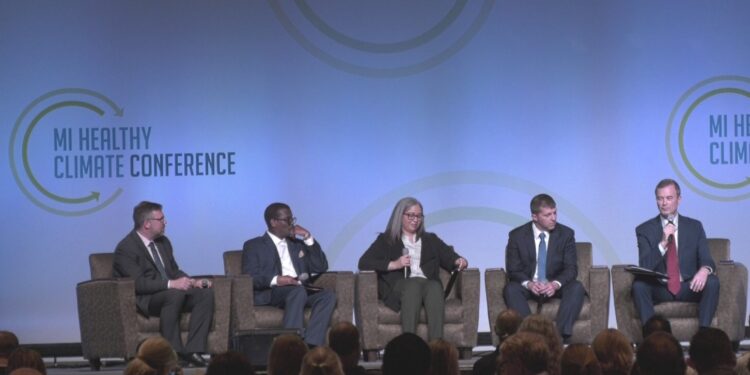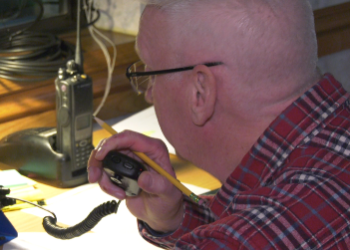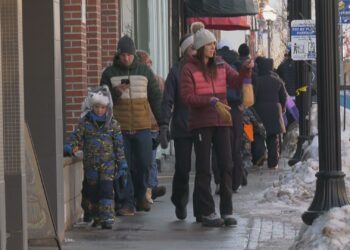LANSING, Mich. (WZMQ) – Michigan’s Department of Environment, Great Lakes, and Energy’s Healthy Climate Conference kicked off today. This year’s theme is accelerating action.
Michigan’s second annual Healthy Climate Conference began at the Lansing Center with an announcement that $12 million worth of funding will be made available to community-based organizations to help advance environmental and climate justice.
Regina Strong is the state’s Environmental Justice Public Advocate. She said starting the conference with this announcement was intentional to keep justice and equity at the forefront of conversations.
“They can meet folks while they’re here who can help them think about things in a different way,” Strong said. “Once they get the federal funding, they have an opportunity to then apply for state funding to help build their capacity so that they can really work through whatever they are trying to accomplish with the money that can have an impact.”
The new program comes in two parts. A climate justice challenge to help organizations applying for federal Environmental and Climate Justice Community Change Grants (CCG) through the EPA.
Under the new Climate Justice Challenge, the State of Michigan has made available up to $11 million in grant and technical assistance funding to maximize federal investments in Michigan from the CCG. These resources will support addressing environmental and climate justice challenges in communities across the state. Community-based organizations across Michigan are now eligible to apply for match funding to support applications to the CCG. The EPA’s CCG program makes funding available to community-based organizations to implement projects that combat climate change, increase resiliency in communities, and address historical environmental injustices.
The second is the Justice40 technical assistance program. MI Healthy Climate Justice40 Technical Assistance Program is a 12-month, cohort-based program for community-based organizations to implement the MI Healthy Climate Plan by giving them the resources they need to serve disadvantaged communities with technical assistance and training to apply for and deploy state and federal climate-related funding. Chosen applicants will receive a participation grant, one-on-one support, training in grant applications and management, and technical assistance in grant writing or other technical needs. The program will open for applications soon. Resources for this program are made available from EGLE to ensure the equitable implementation of the MI Healthy Climate Plan. EGLE will administer the program in coordination with the MIO TAC. For more information, check back at EGLE’s OCE website.
Zachary Kolodin, Michigan’s Chief Infrastructure Officer said the clean energy transition is happening in different ways in different places
“What this is is an opportunity for community-based organizations focused on environmental justice work to build coalitions with local governments and other community-based organizations and nonprofits to help bring the benefits of investment in clean energy and environmental remediation and climate resilience down to the Community level. The work of transitioning our economy from one that’s dependent on fossil fuels to one that’s dependent on clean electricity happens at all levels and it’s not just the big projects.” Kolodin said. “We can make choices in the way that we build our policy that either builds up people toward the middle class as we make this energy transition or leaves them behind.”
Projects eligible for the funding range from community solar arrays and energy-efficient home upgrades to air quality monitors. Strong said it’s all about what climate solutions fit each community the best.
“what’s great about a conference is you bring together people with disparate backgrounds that are doing different things that are in different parts of the chain to address climate. and if you overlay that with an overarching theme of achieving justice, you have that opportunity for people to hear this, that haven’t heard it before.”Strong said. “We’re really working hard to impact people where they are. So we want communities to speak for themselves, we want them to bring things to us that we can help address.”
Both programs aim to implement the MI Healthy Climate Plan by giving disadvantaged communities the assistance and training they need to apply for and deploy state and federal climate-related funding. The Lieutenant Governor said those communities are the ones leading the fight against climate change, and that the state is committed to helping them access the resources that they need to do so.










